LARA KASSIR
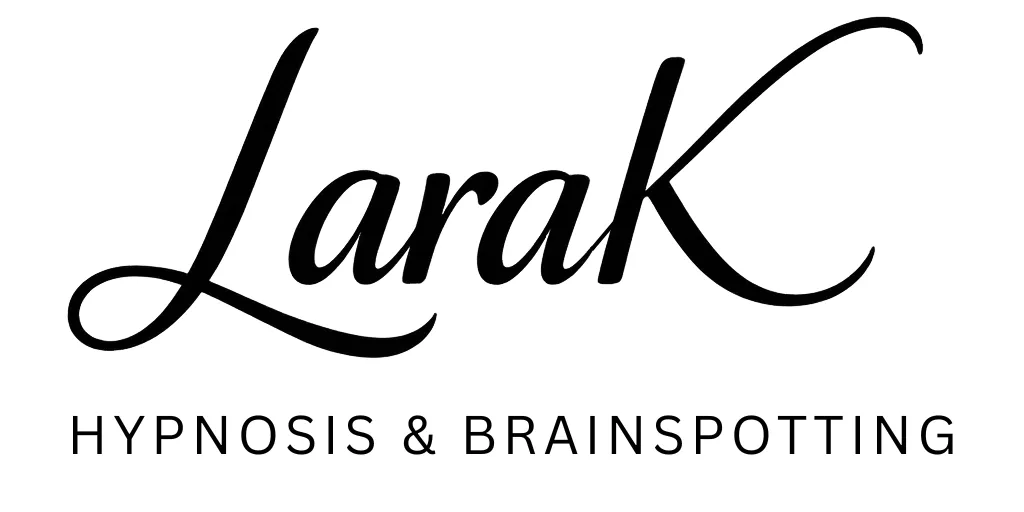
Discover How I Can Help You Live A More Comfortable Lifestyle
Discover How I Can Help You Live A Lifestyle Without Addiction, With Less Stress & Anxiety, Get Better Sleep, & Earn More Money!
Find Out More By Taking The Short Quiz Below!
Do you have...
Stress & Anxiety?
Trouble Sleeping?
Money Blocks?
Compulsive Behaviors?
Book your free discovery consultation by contacting me below!
Who Is Lara?
Honors graduate from the Hypnosis Motivation Institute (HMI) in LA, the most known & diligent College of Hypnotherapy worldwide.
During her 2000 hours, of one on one in-person training Lara helped AA members in LA, California, since 2018, recovering from behavioral and substance abuse.
Besides, she helped people suffering from Anxiety, Weight loss & Eating Disorders, Insomnia, Depression, PTSD, fears & Phobias.
Lara’s multicultural background led her to practice internationally. Born & raised in Paris, France, she is fluent in French, English, Italian, & Spanish.
Lara’s method is unique, combining her skills in Transformational Coaching, Hypnosis, Somatic Therapy & BrainSpotting: a brain and body modality releasing the physical and emotional traumatic memory.
Lara’s holistic approach to healing is somatic as traumas are also stored in our bodies. Every session is specifically tailored to the client’s needs.
Lara is highly dedicated on delivering the best results to serve her clients achieving long term positive transformations improving the quality of their lives.

What Does Lara Offer?
Lara has years of experience helping people in all walks of life be better versions of themselves by specializing in Hypnotherapy & Brainspotting which have been proven techniques to fix problems such as:
Money Blocks
Insomnia
Stress & Anxiety
Addictions
Lara has years of experience helping people in all walks of life be better versions of themselves by specializing in Hypnotherapy & Brainspotting which have been proven techniques to fix problems such as:
Money Blocks
Insomnia
Stress & Anxiety
Compulsive Behaviors
Eating Disorders
Negative Patterns/Habits
Alcohol Abuse
Gambling
Why Trust Lara?
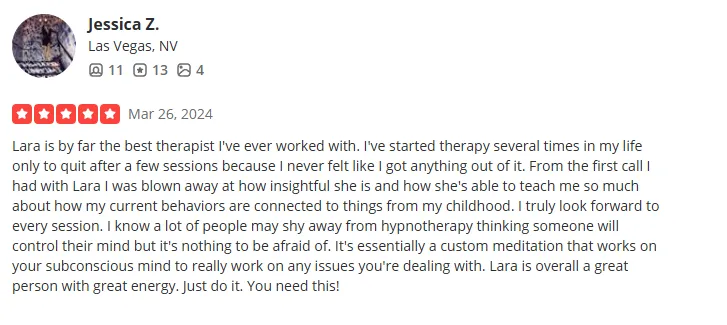
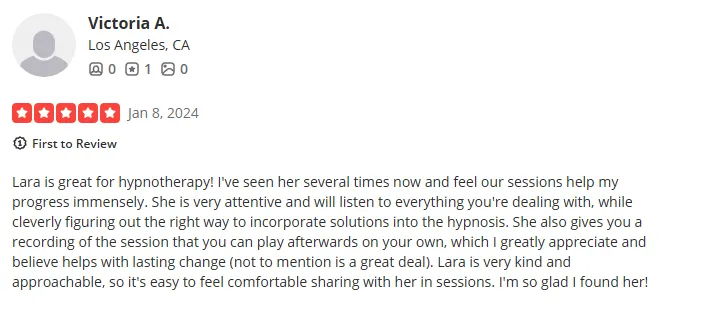
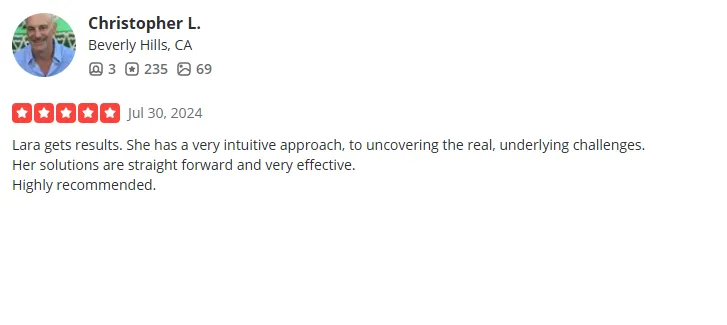
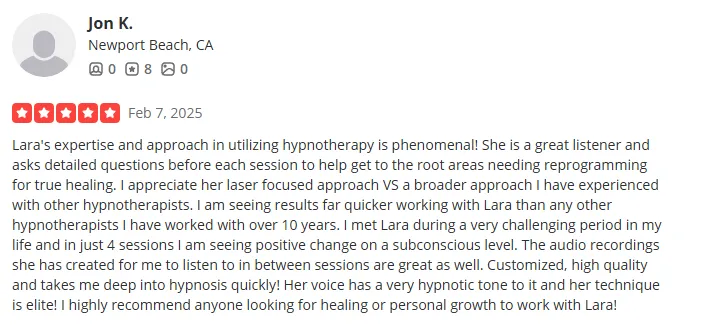
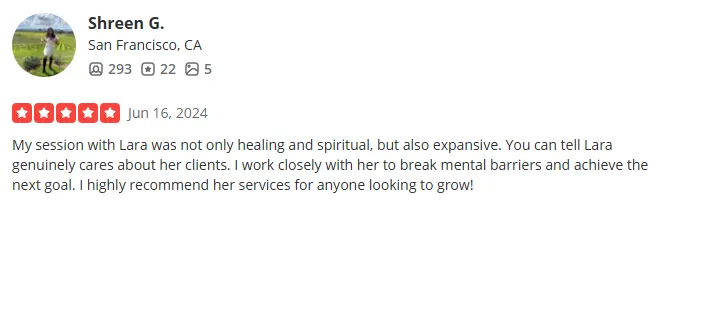
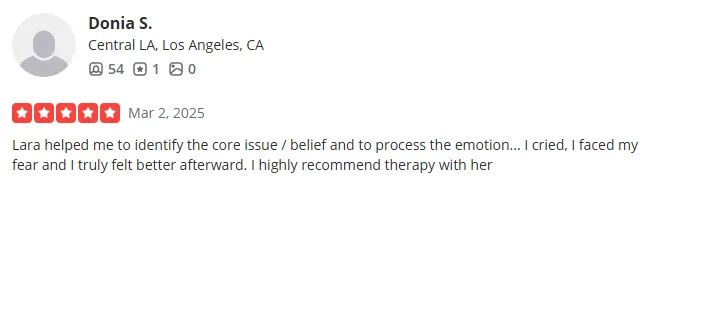
How Can Lara Help?
Hypnosis & Brainspotting
Destructive behaviors such as over-eating, over
drinking, gambling, and compulsive sexual
behavior are leveraging the dopamine level,
narrowing down the activities bringing us pleasure.
Over-eating/Binging
Alcohol use Disorder
Substance Abuse
Gambling
Compulsive Sexual Behavior






Professional Certifications
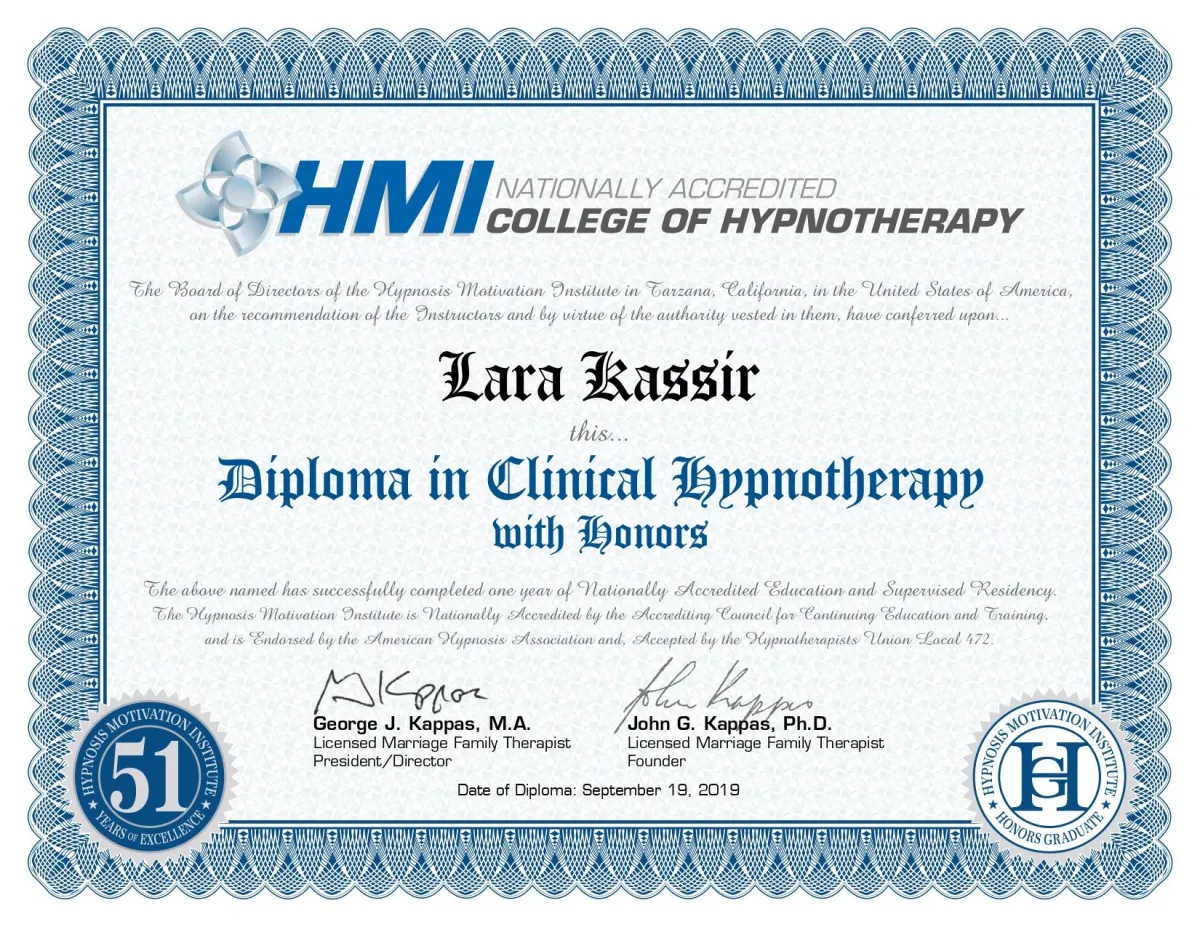
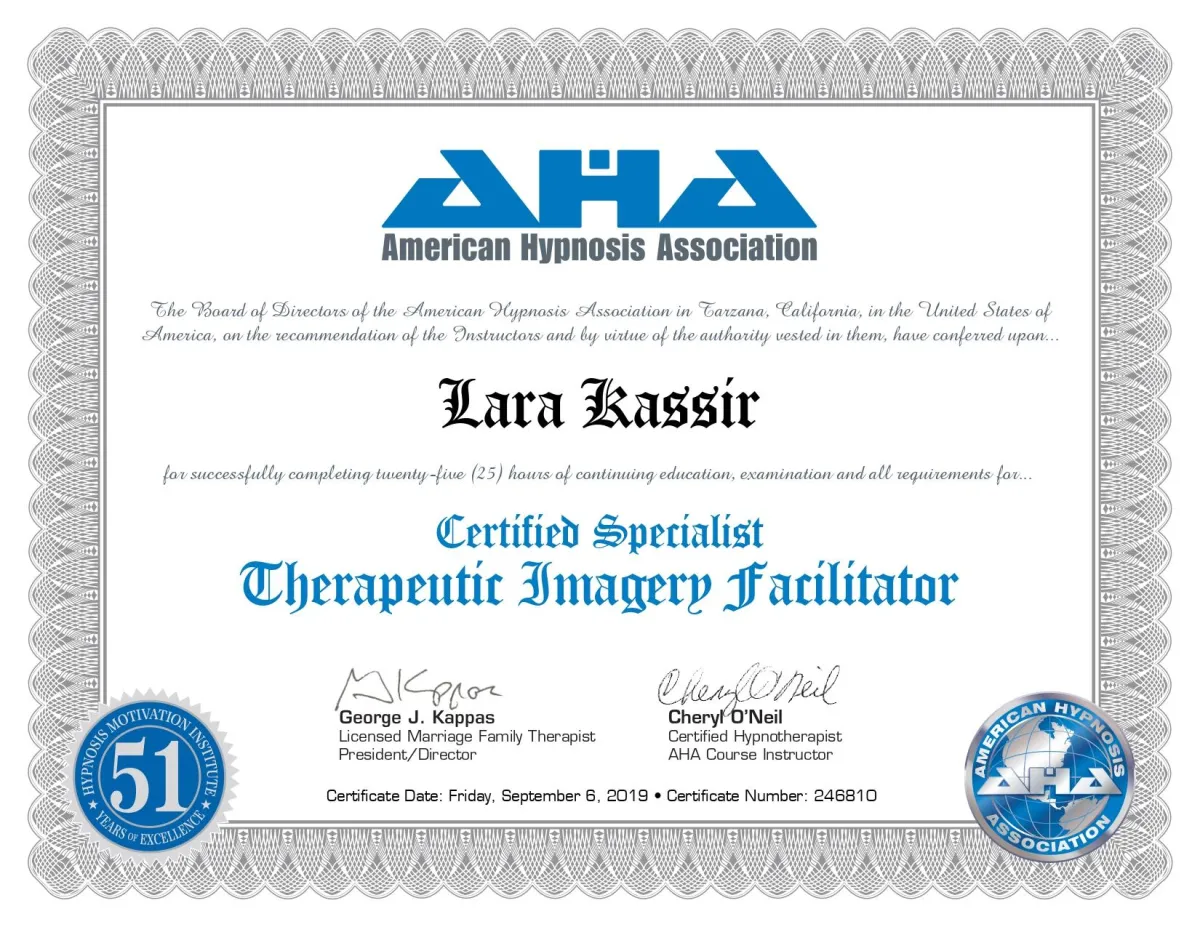
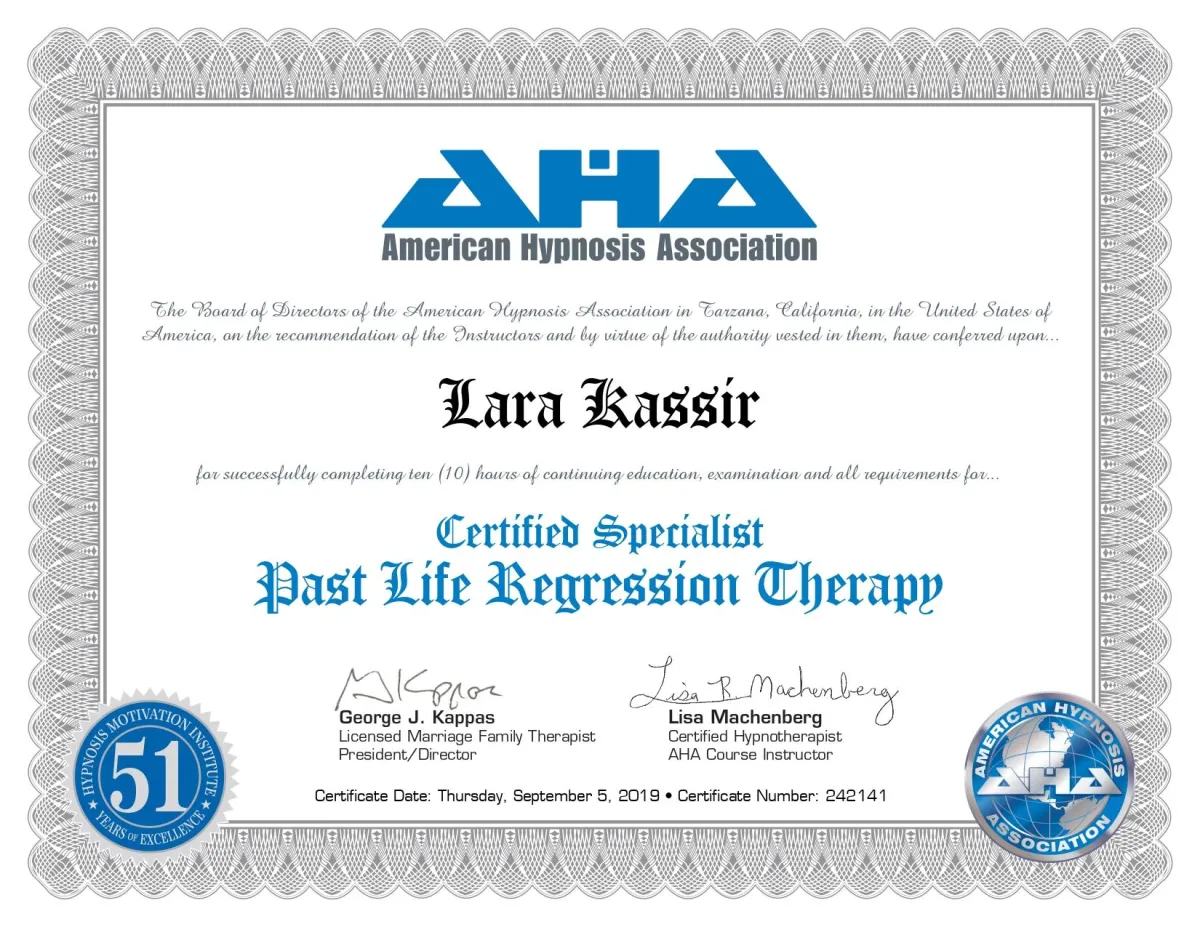
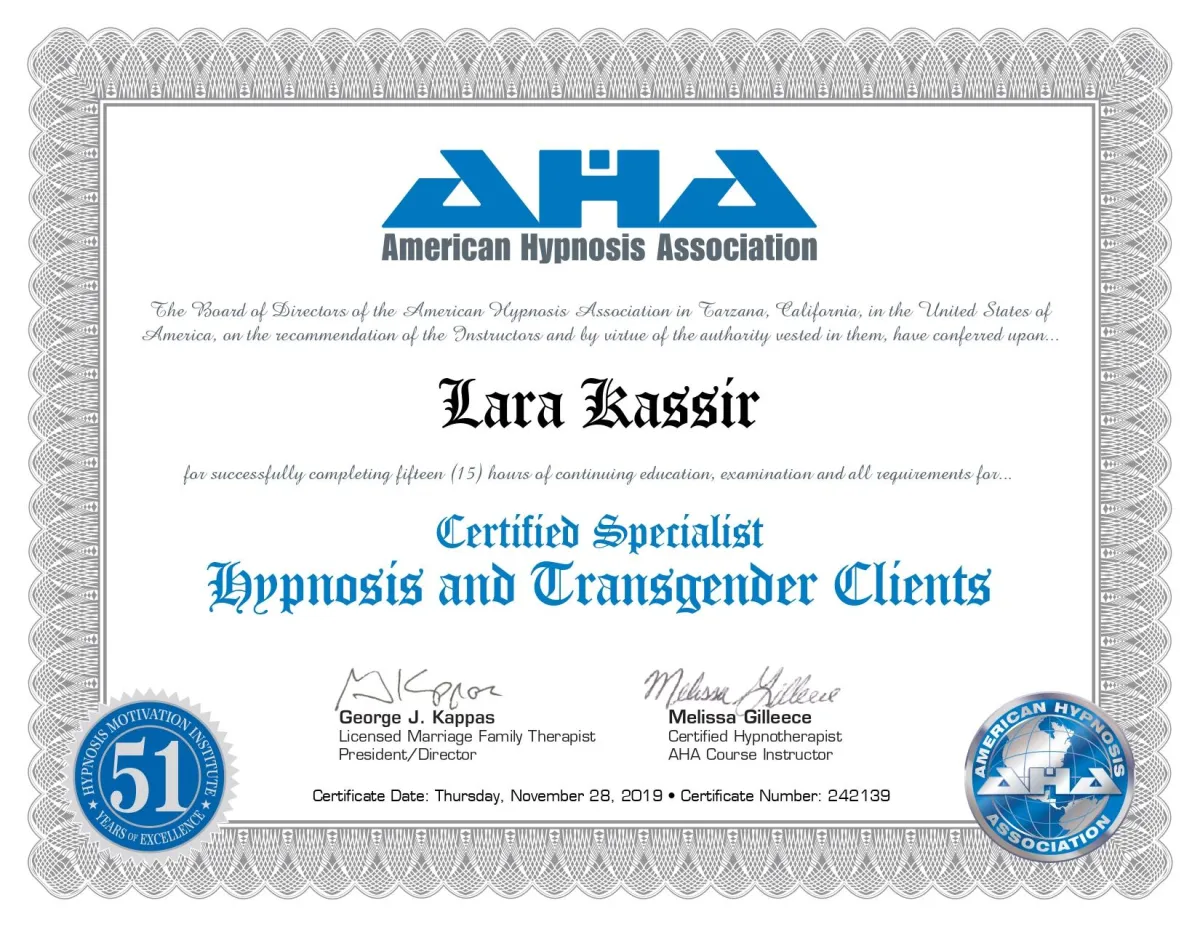
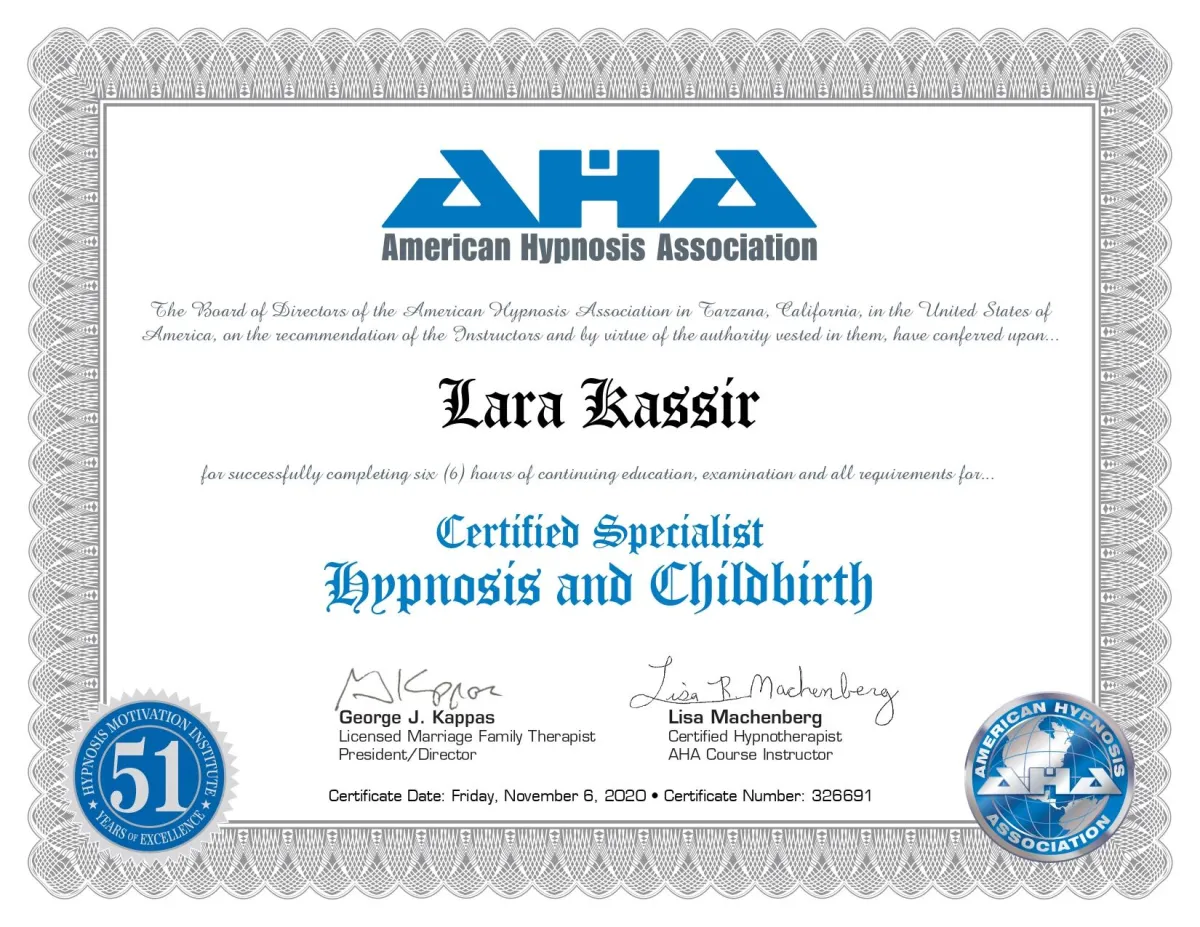
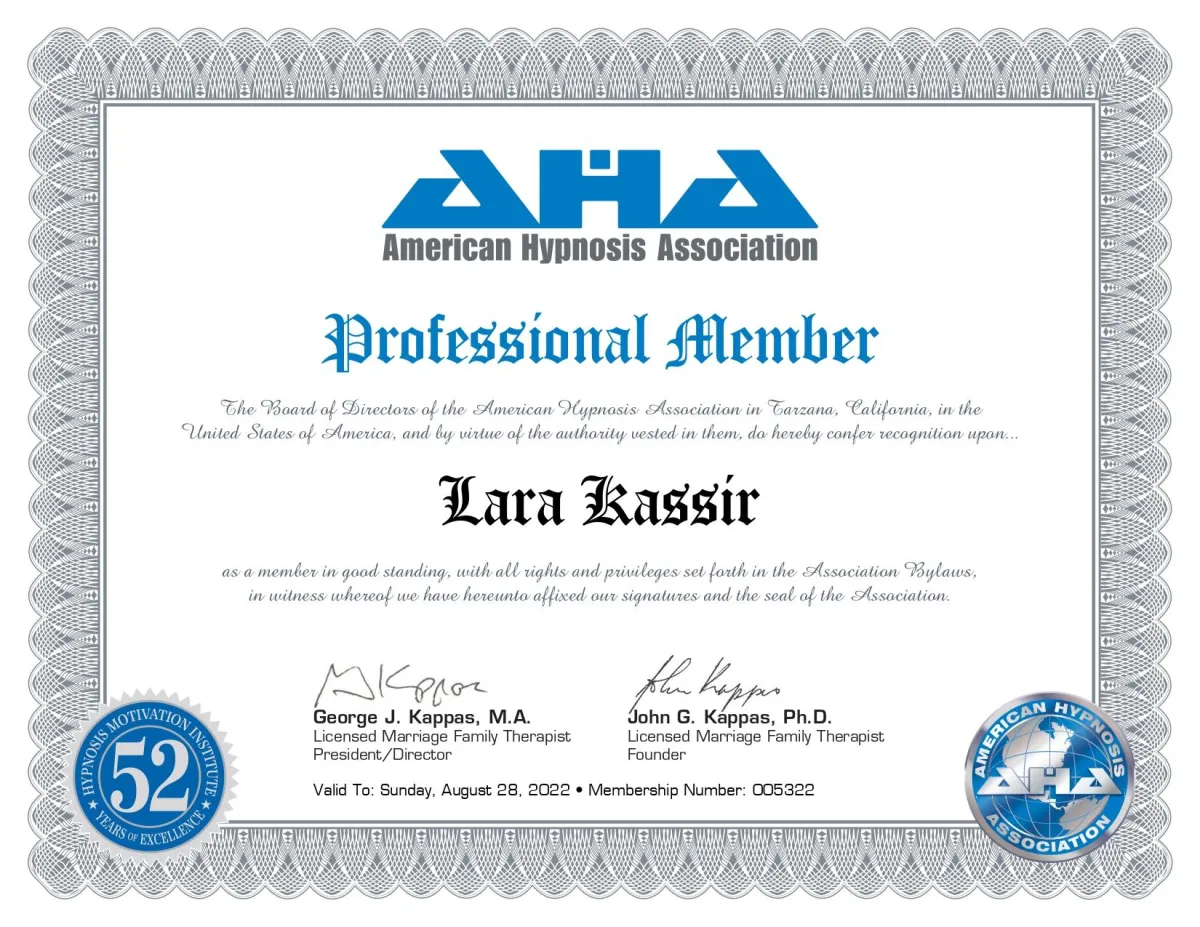
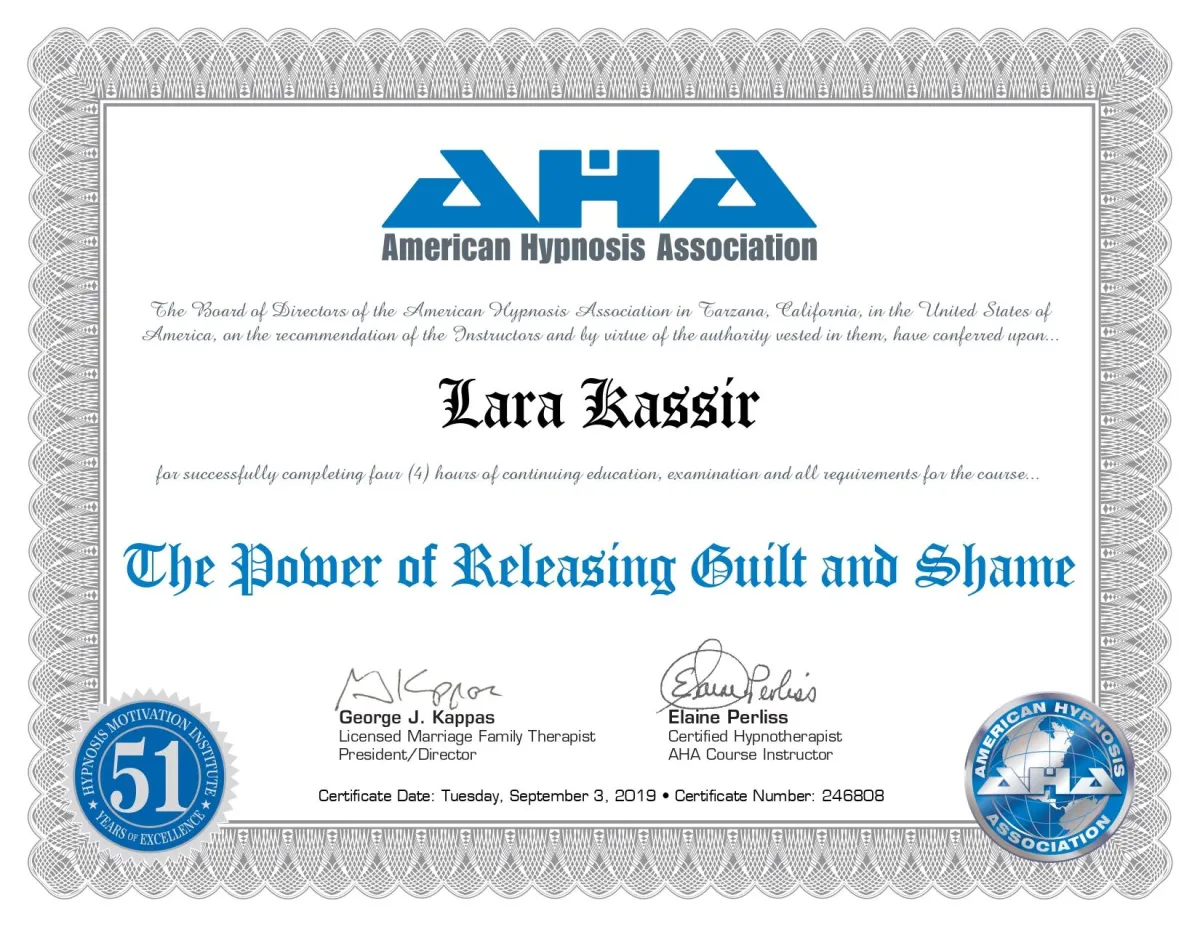
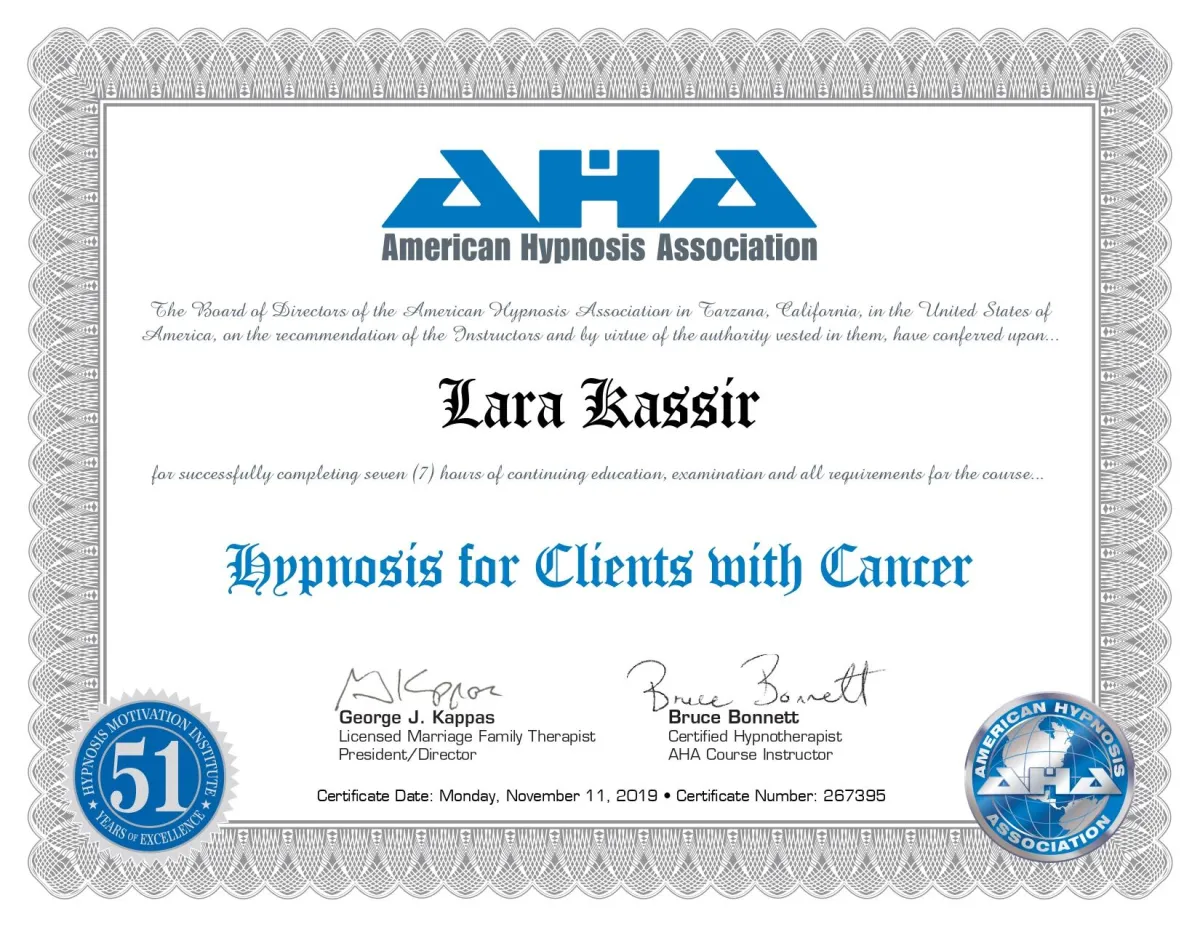
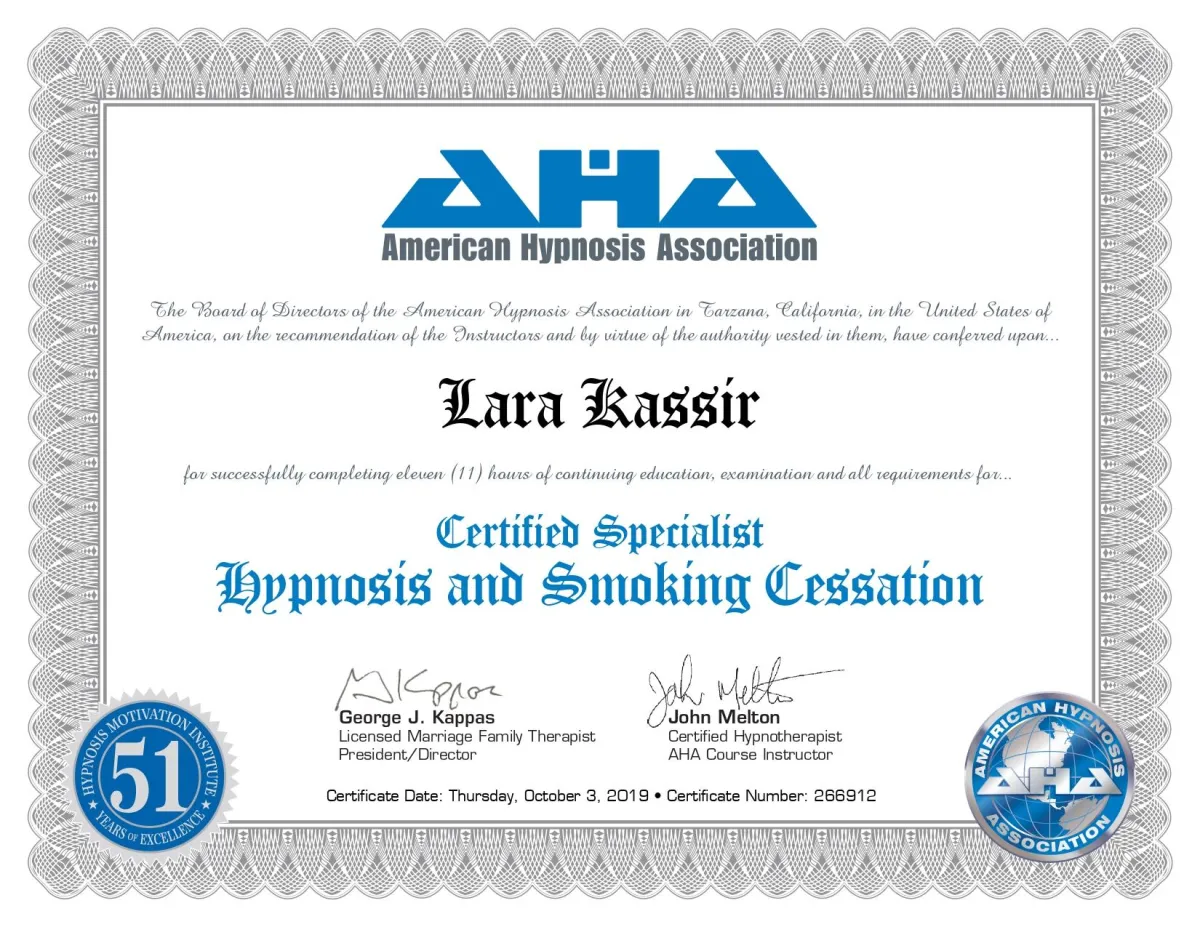
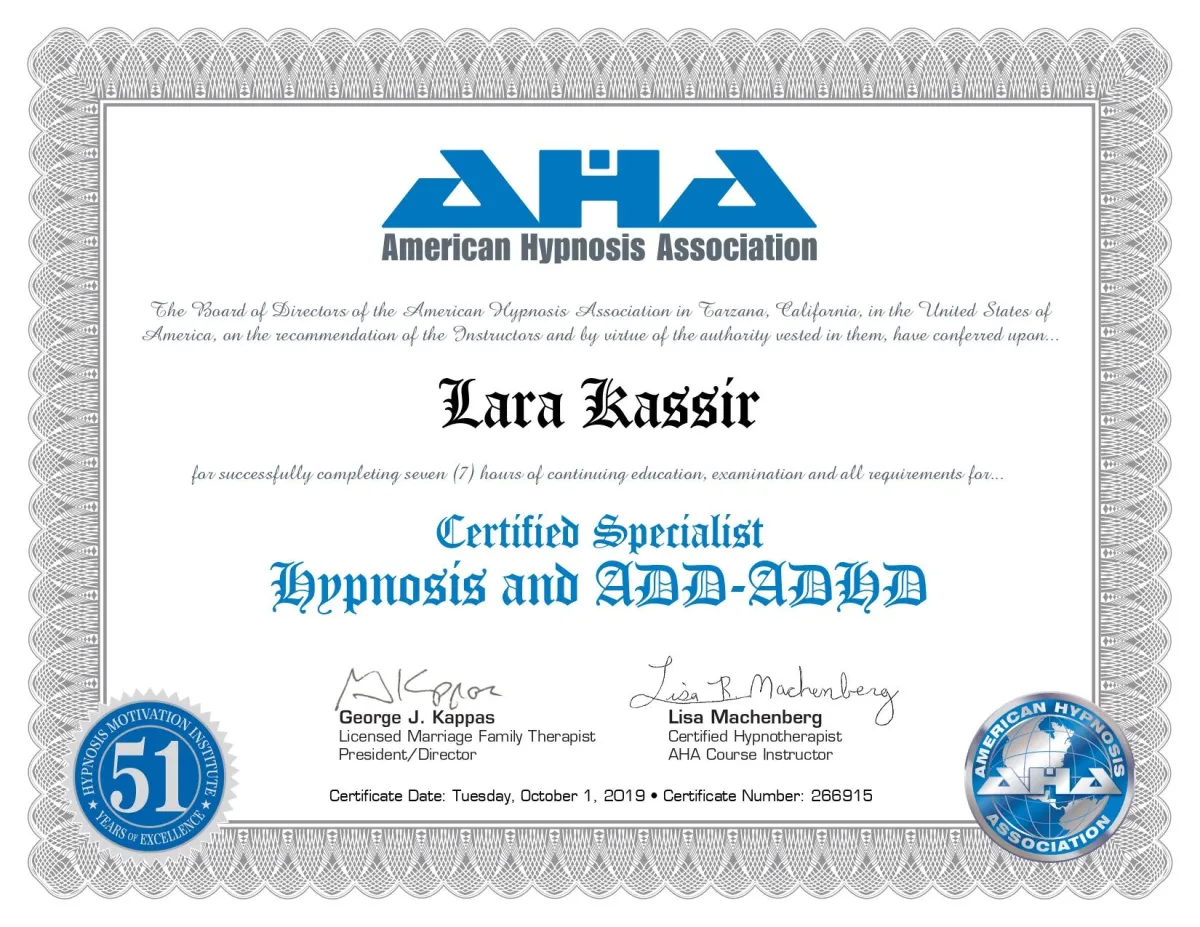
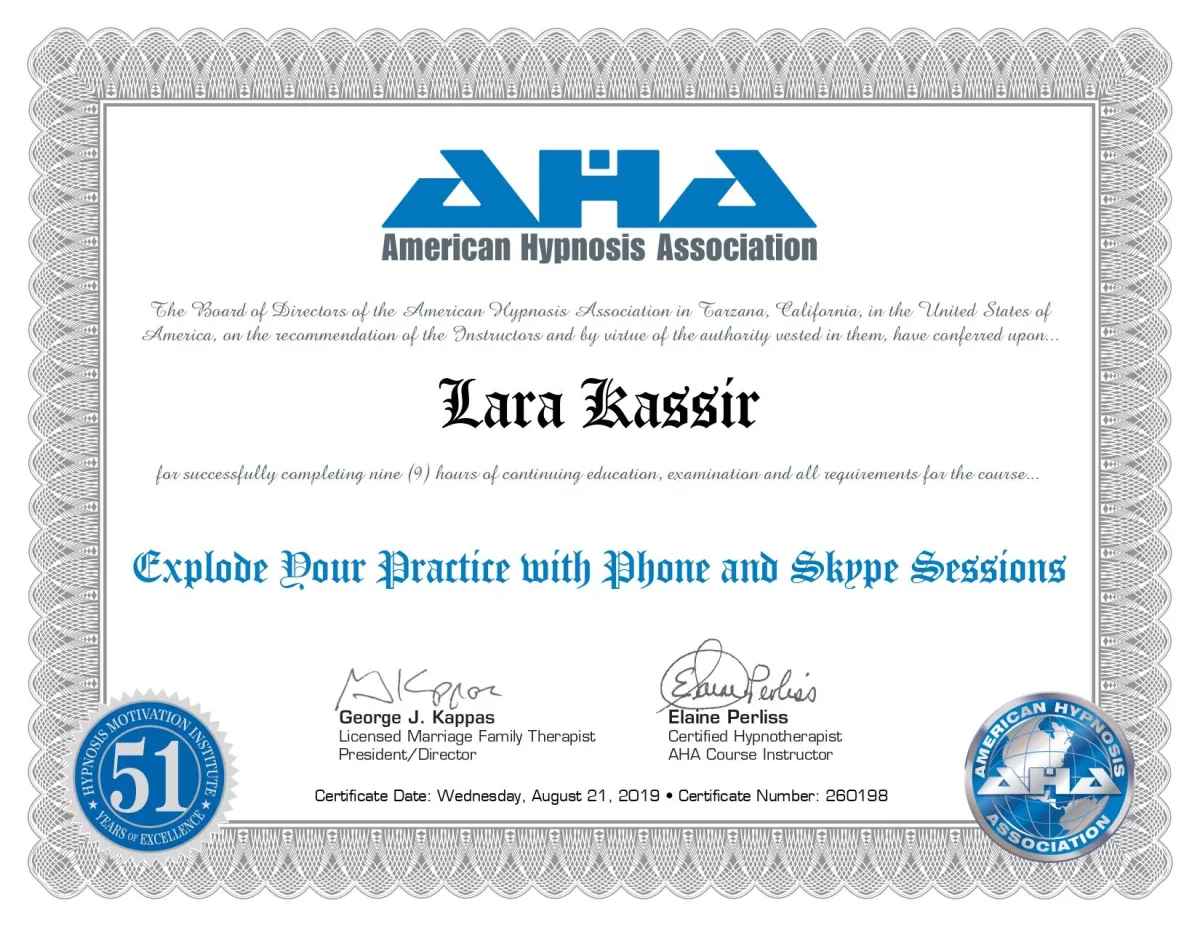
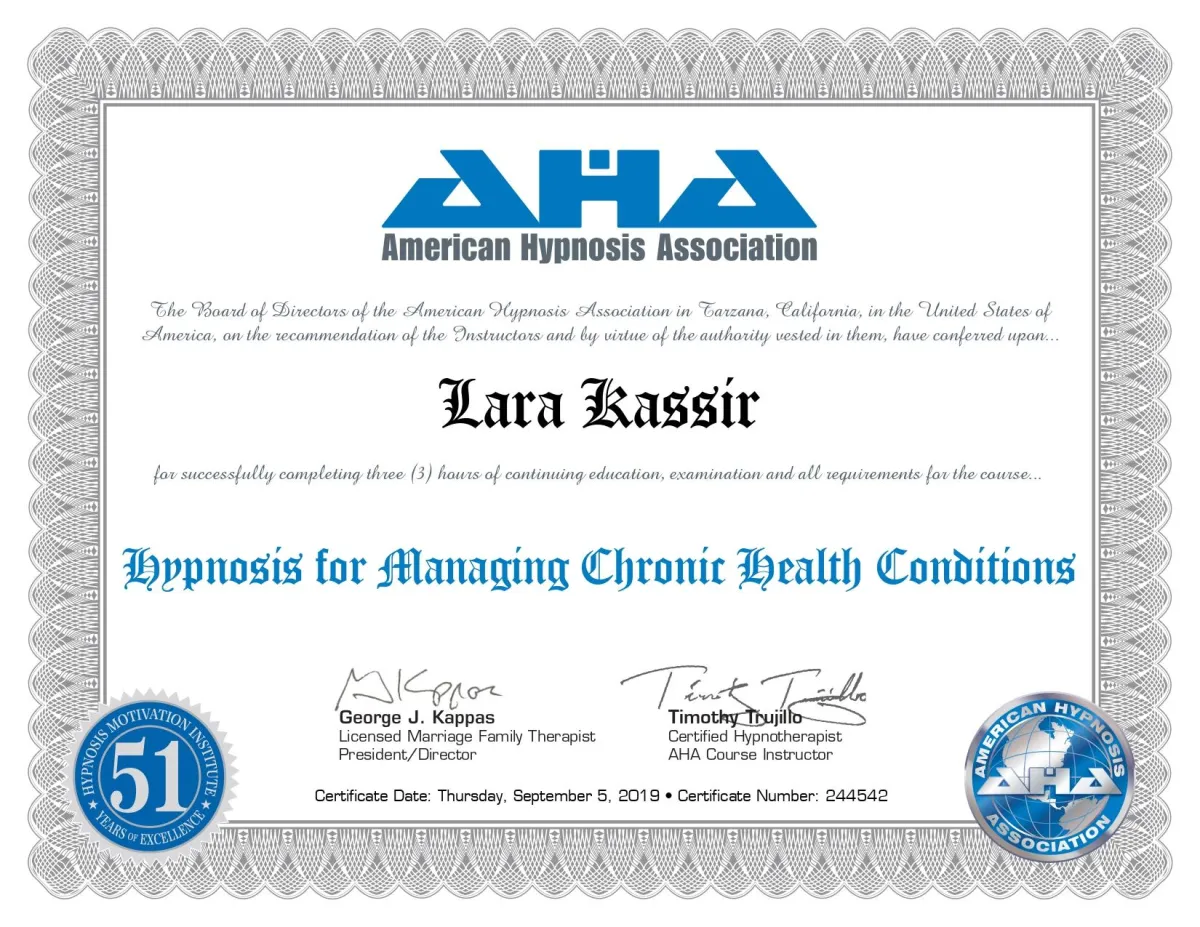
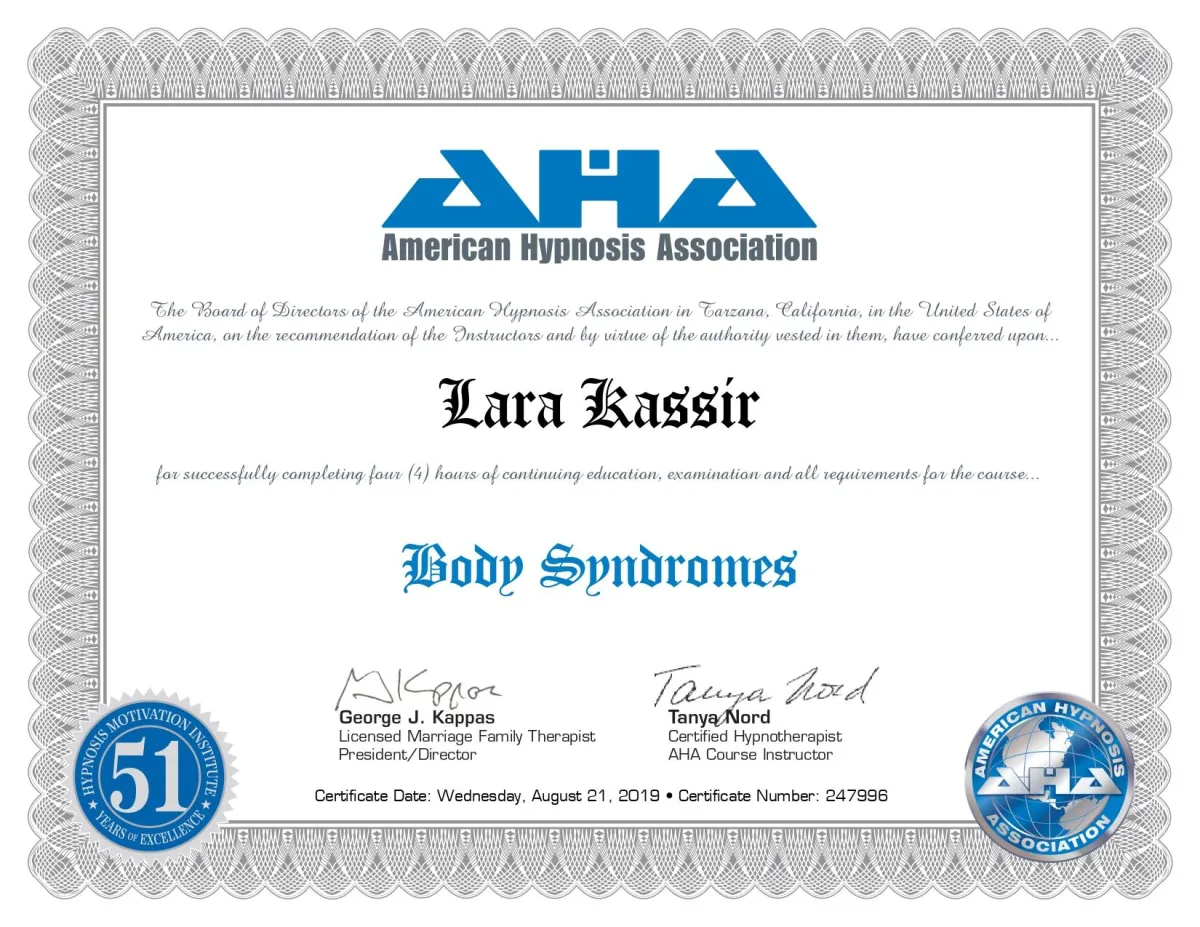
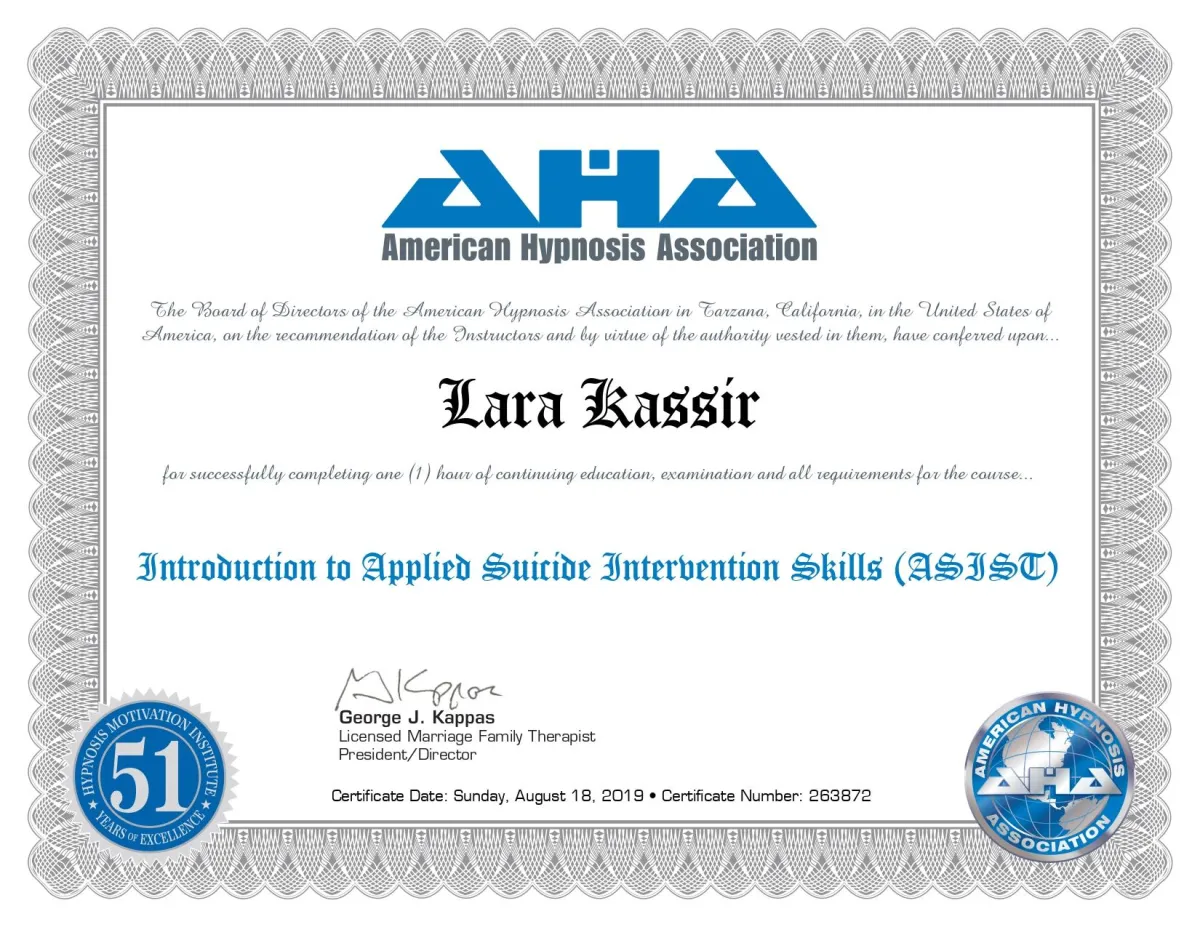
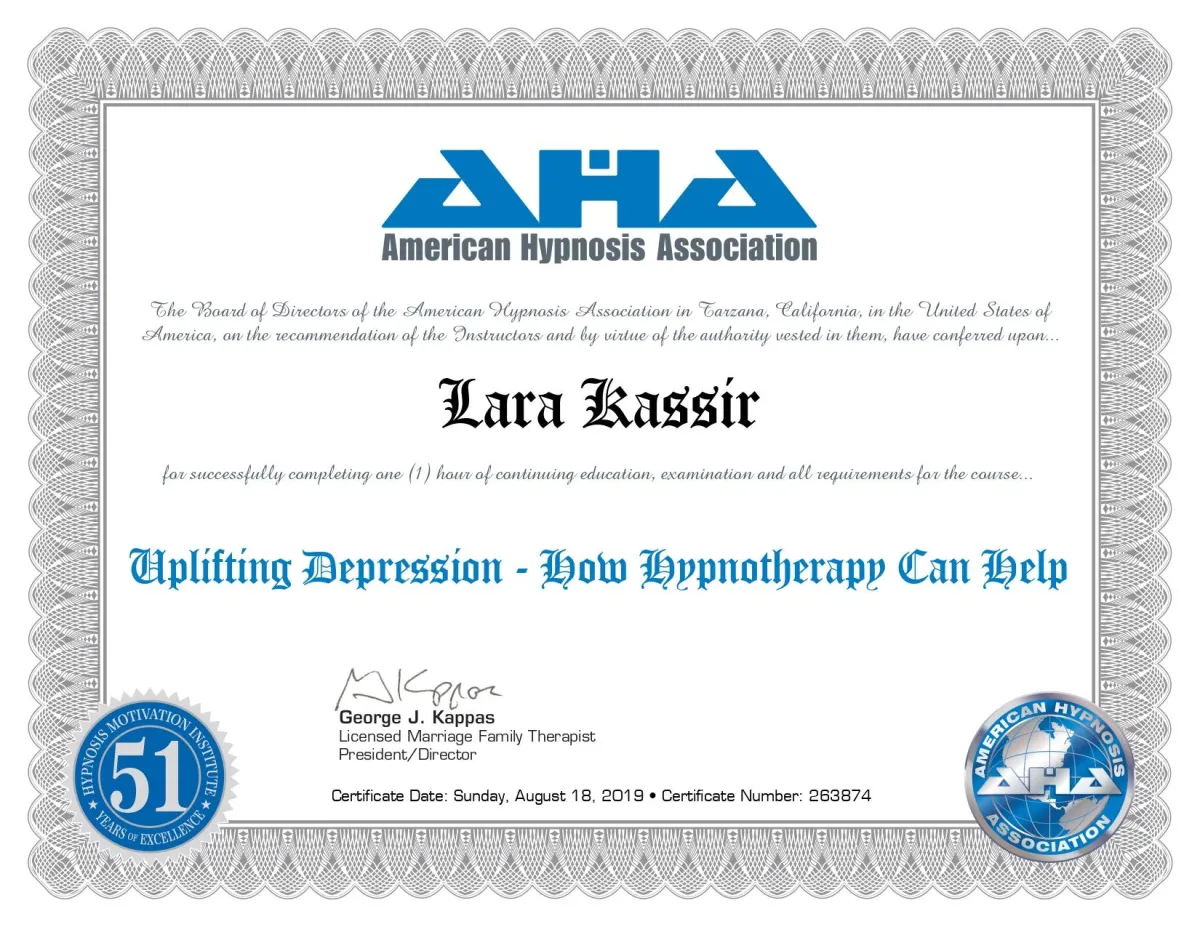
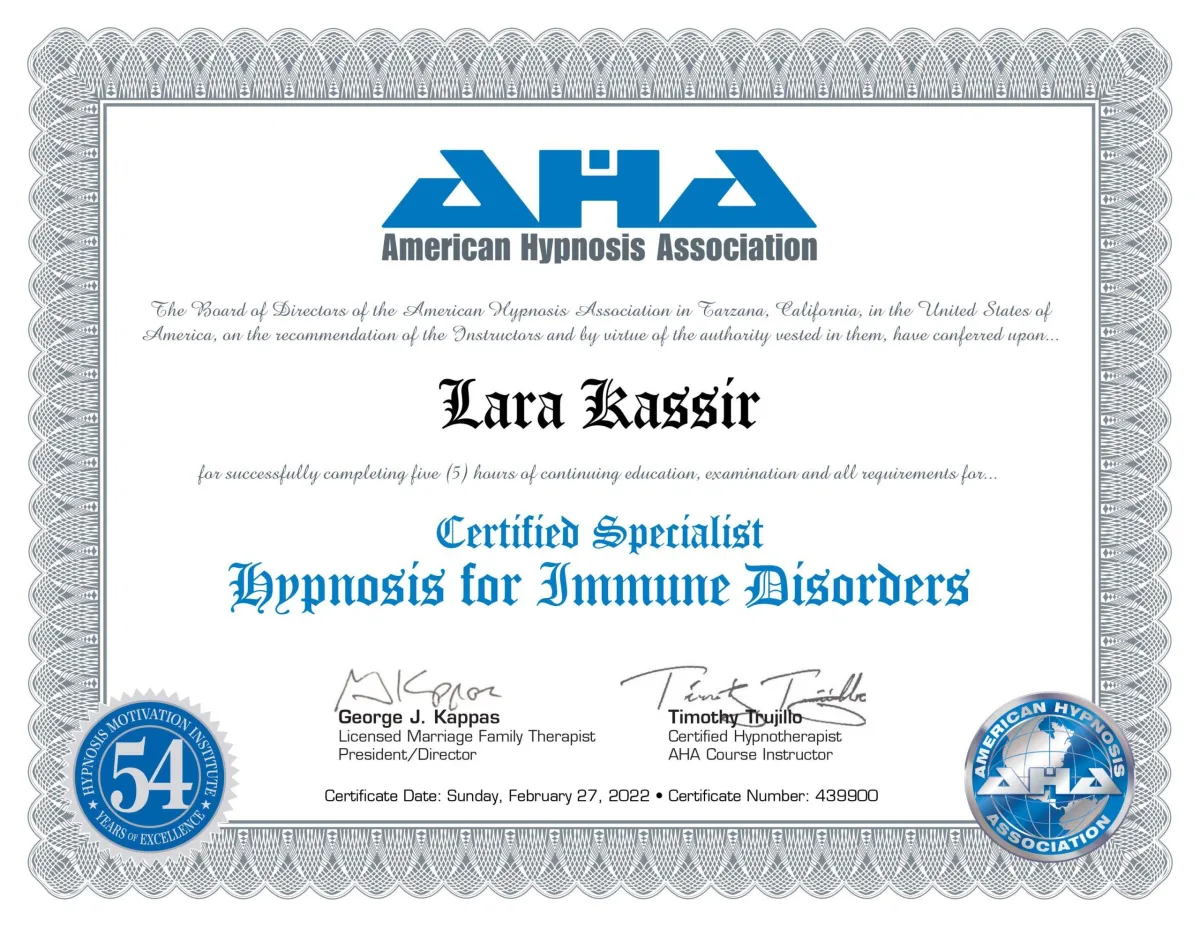
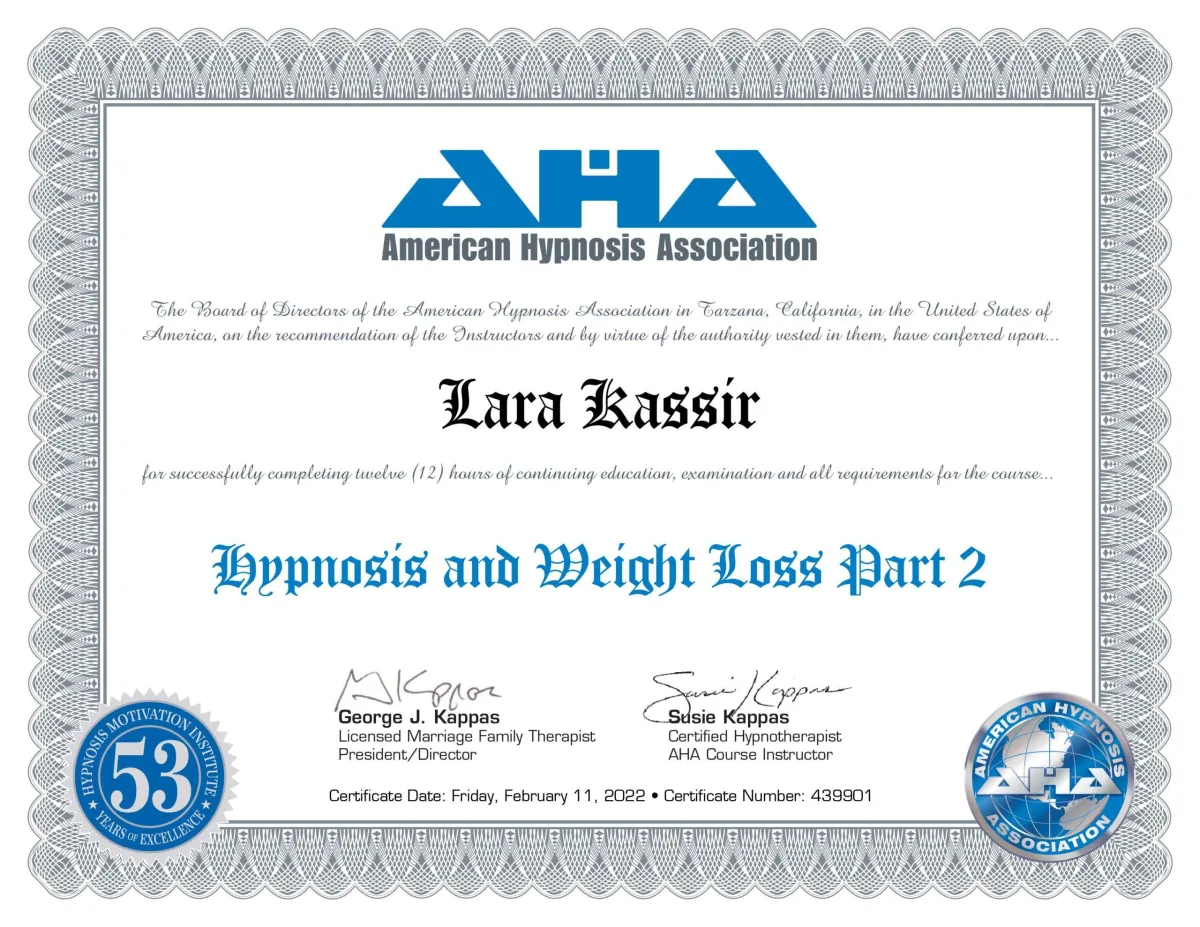
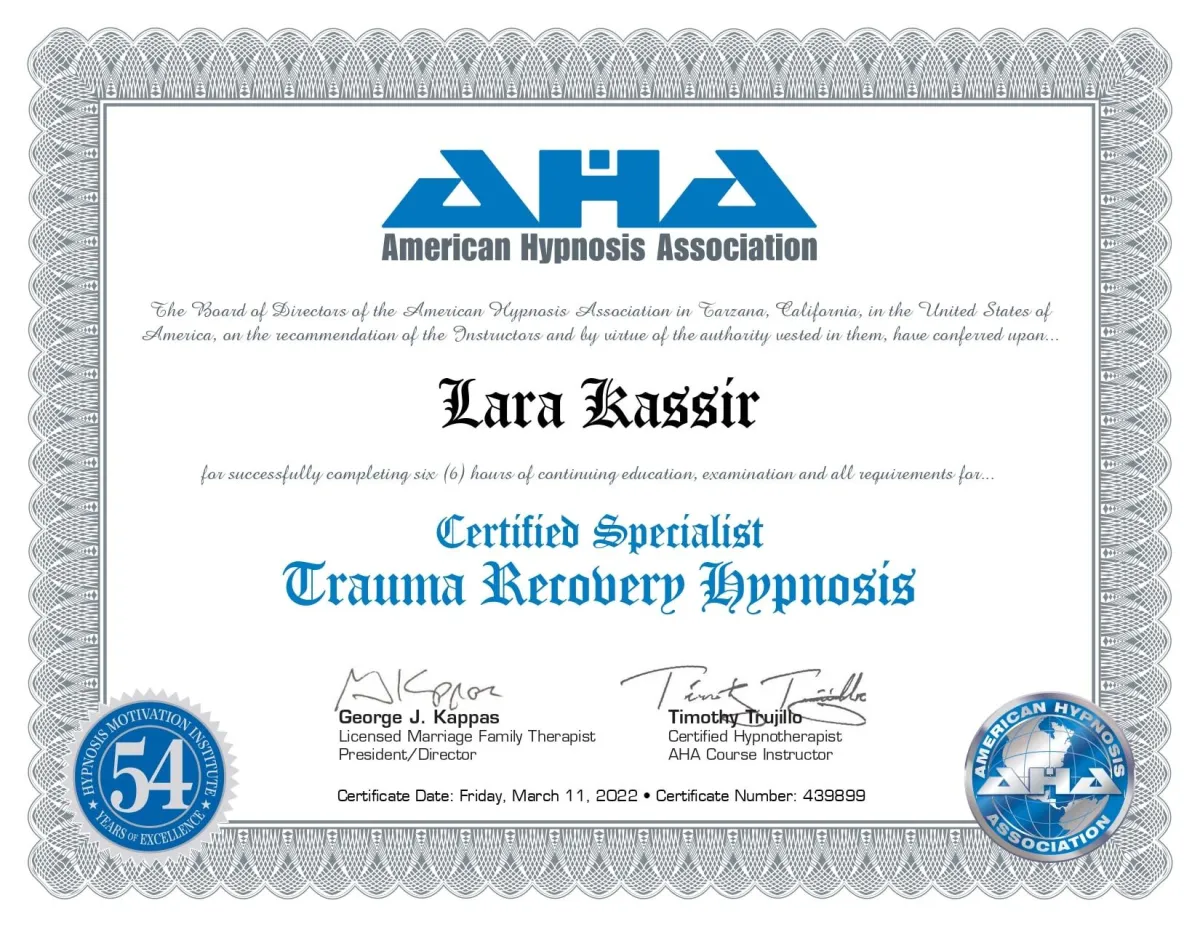
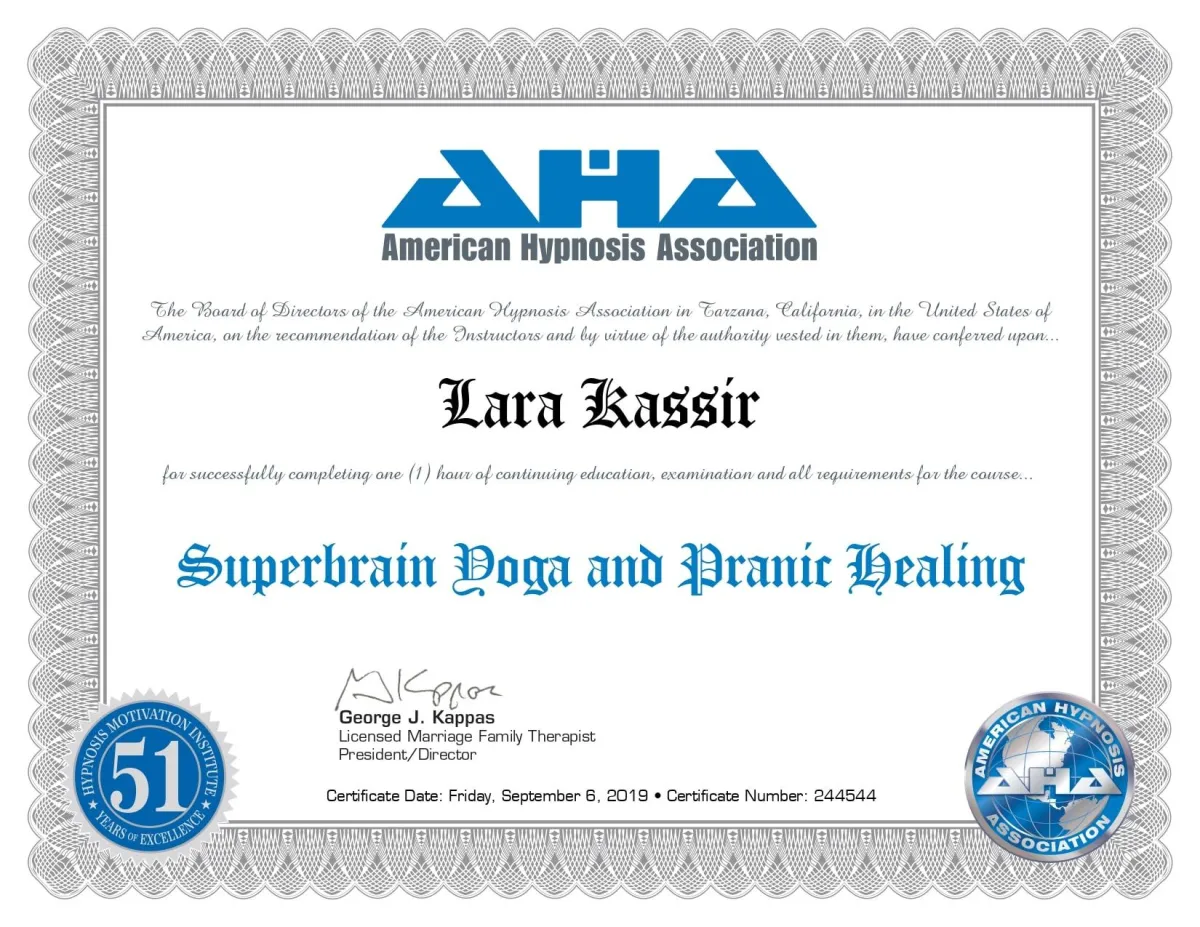
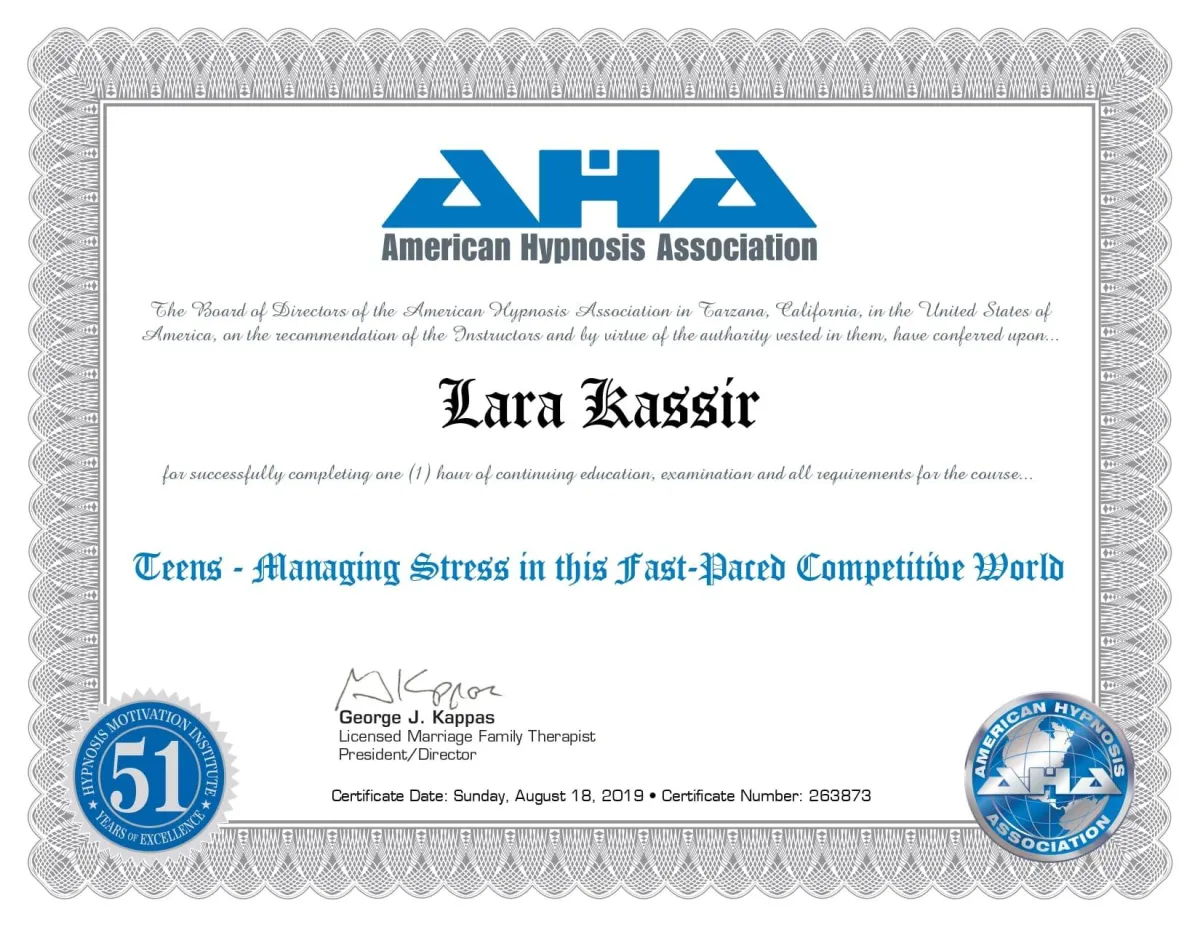
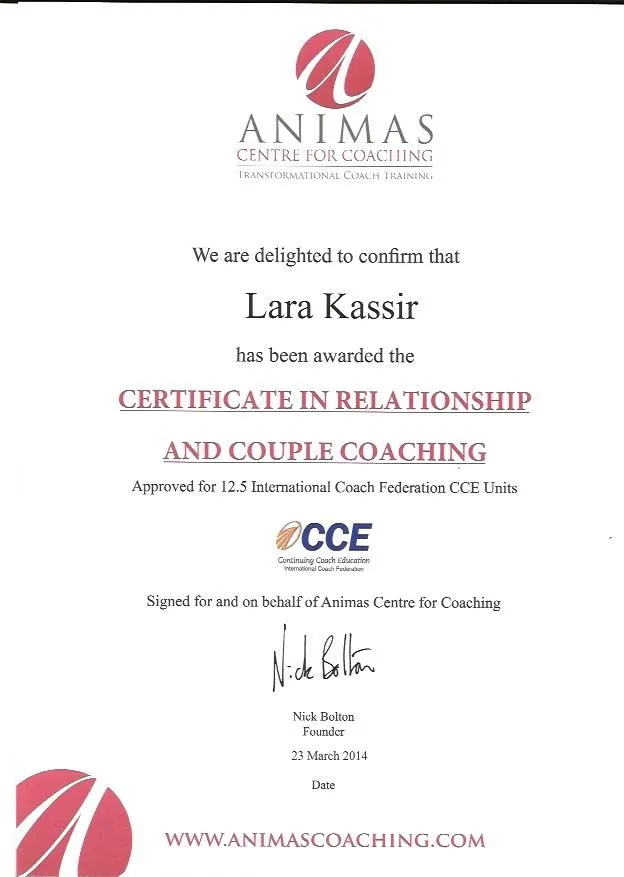
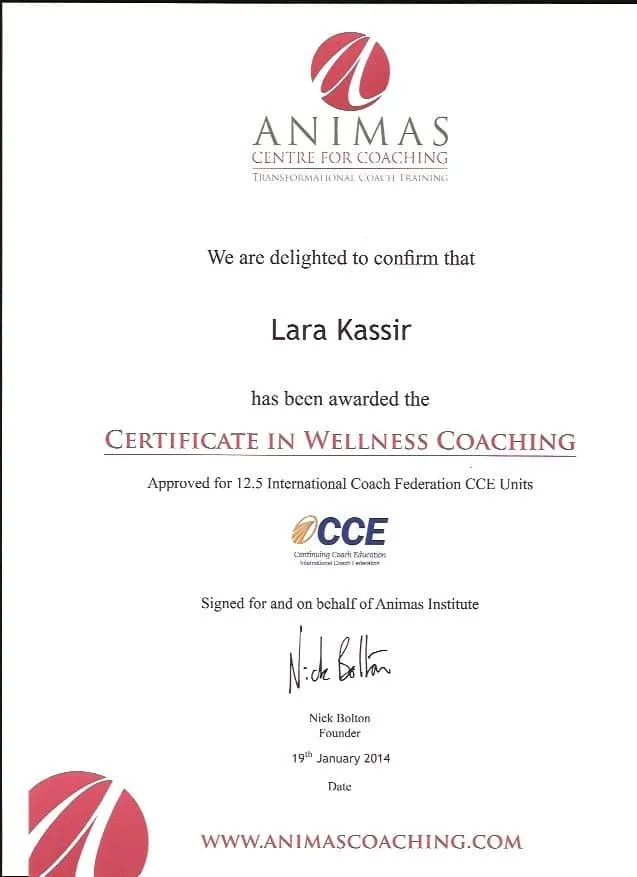
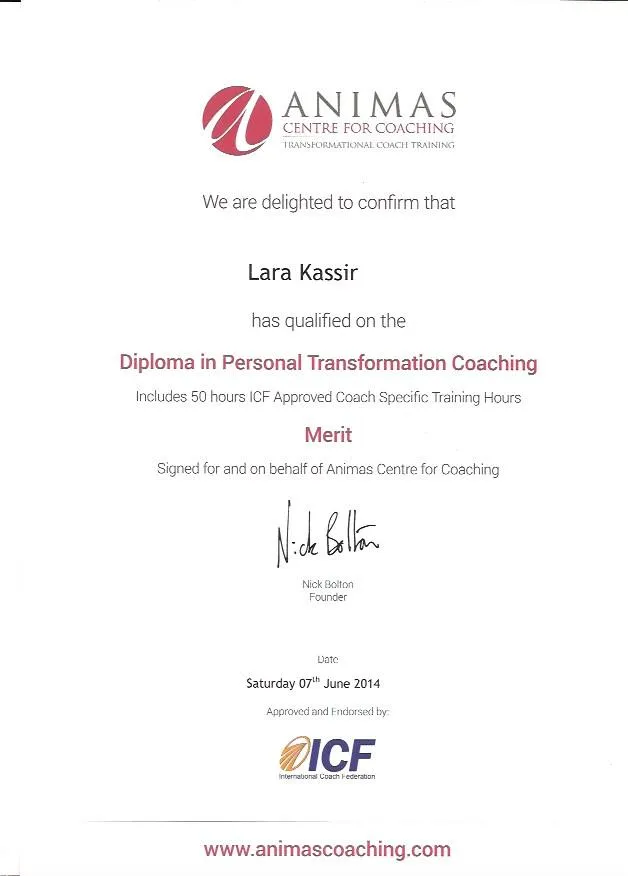
Talk Therapy Vs Somatic Therapy (Hypnosis & BrainSpotting)
Tap Into Deeper Layers Of The Brain Where Trauma And Negative Programming Is Stored
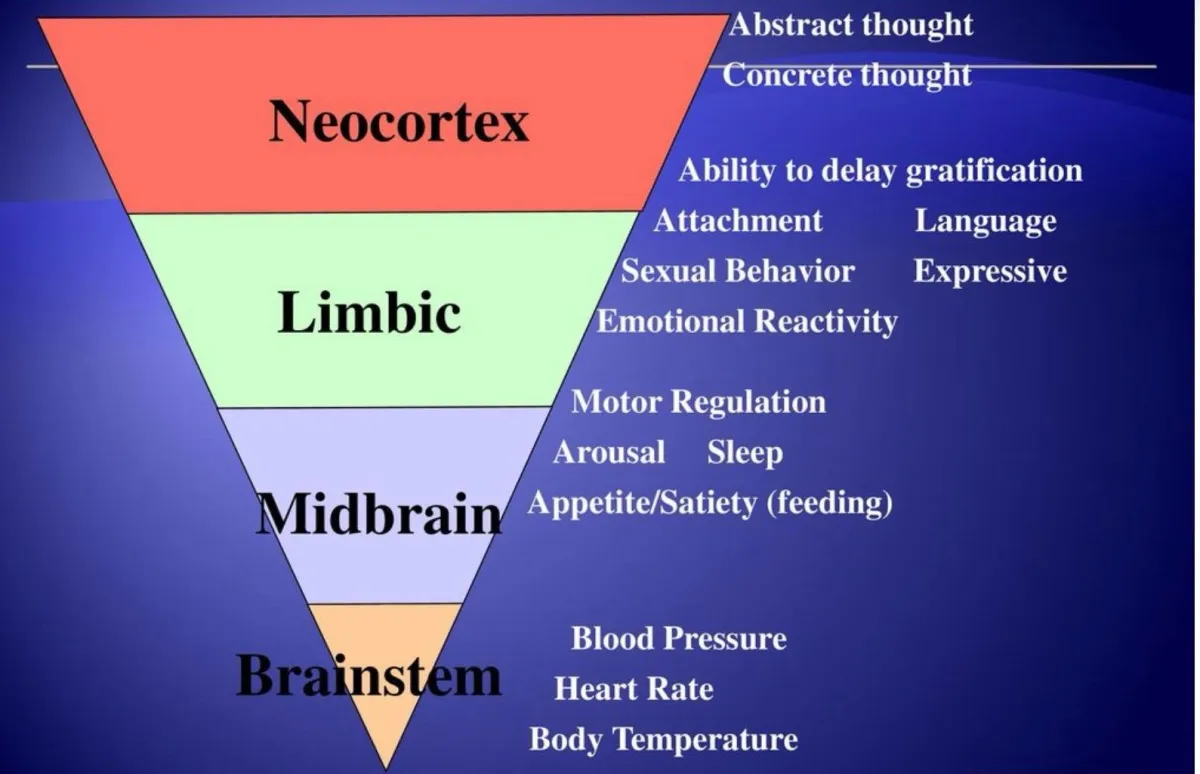
How Does Hypnosis Work?
When in the hypnosis trance our brainwaves shift from
Beta to Theta brainwaves. Allowing us to absorb the
new positive suggestions, installing our new
programming in our subconscious mind.
Theta brainwaives (4-7 hertz), referred to as the focus and attention wave.
Also called the meditative wave because they’re associated to deep states of mediation.
It’s the best brainwave to be in when reprogramming
the subconscious as it enhances memory.
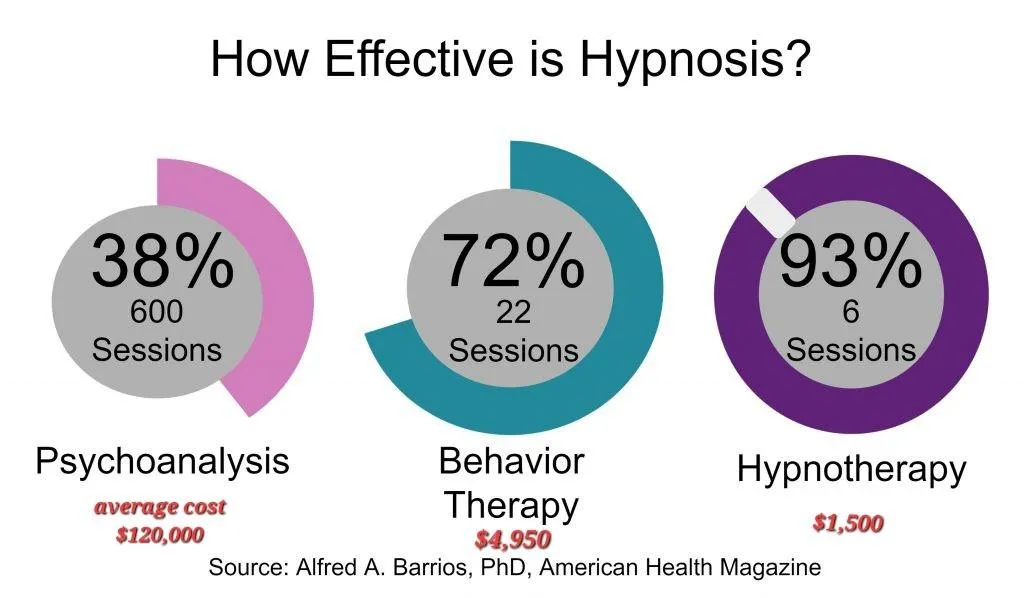
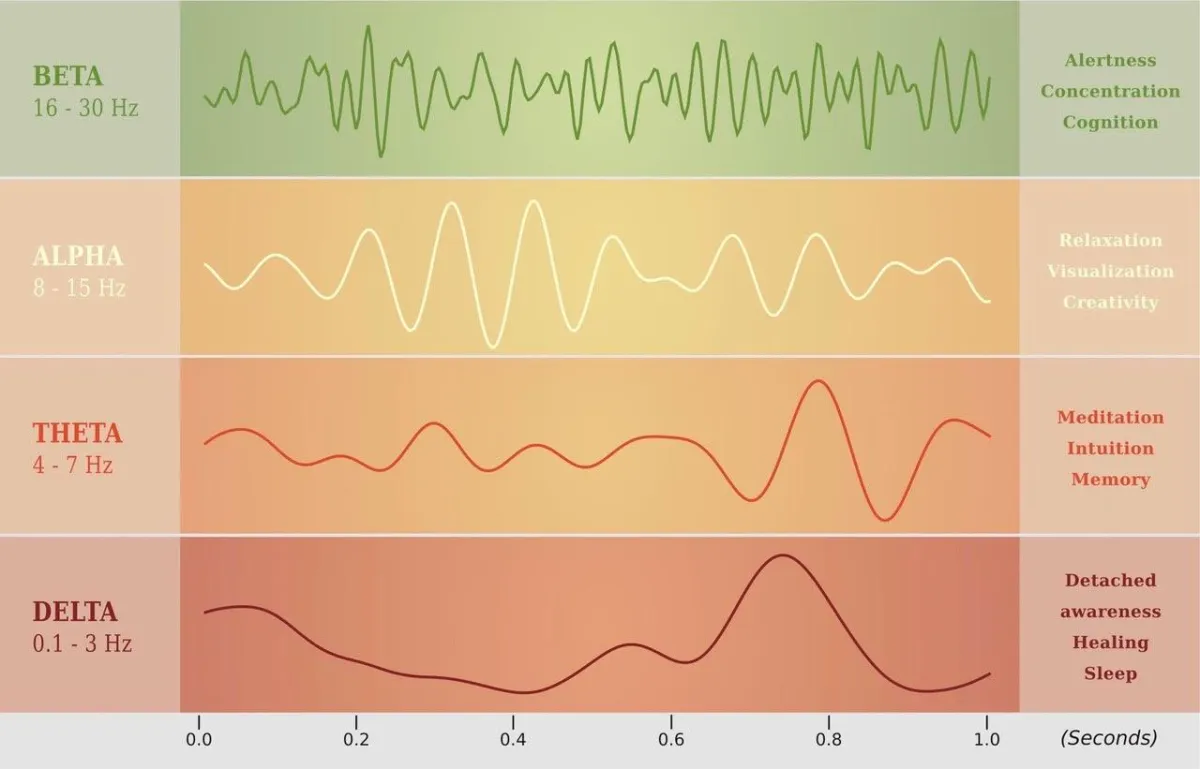
How Does Brainspotting Work?
When in the hypnosis trance our brainwaves shift from
Beta to Theta brainwaves. Allowing us to absorb the
new positive suggestions, installing our new
programming in our subconscious mind.
Theta brainwaives (4-7 hertz), referred to as the focus and attention wave.
Also called the meditative wave because they’re associated to deep states of mediation.
It’s the best brainwave to be in when reprogramming
the subconscious as it enhances memory.
Frequently Asked Questions...
Question: What is Hypnosis?
Answer: Hypnosis is an altered state of consciousness, similar to a deep state of relaxation or daydreaming. When in hypnosis we are in a hyper-focused state and highly suggestible. Hypnosis is a natural state we experience daily. Have you ever found yourself immersed in a movie? Have you missed an exit while you’re driving? Have you ever tuned out while in a conversation? If yes then you’ve already experienced a hypnosis trance.
Question: What is the difference between Hypnosis & Hypnotherapy ?
Answer: Hypnotherapy consists of using the hypnosis trance for therapeutic purposes. Hypnosis refers to a state of consciousness, whereas hypnotherapy is the process of using that state to interact with the subconscious mind to create long-lasting positive life changes. A mental or health professional or Doctor who is using hypnosis is practicing hypnotherapy.
Question: What are the characteristics of the hypnotic state?
Answer: This state is characterized by the appearance of a certain number of modifications differentiating it from the usual waking state:
• A feeling of mental calm and relaxation
• Sustained attention with attention absorption
• An opening of the attentional field
• Decreased judgment and censorship
• A suspension of the usual temporal-spatial orientation and sense of self
• Effortless auto-reply experience
• An increase in suggestibility
This waking state of consciousness is similar in certain aspects to the state of consciousness that precedes falling asleep:
• Importance of imagery
• Decreased spontaneous motor activity
But, the subject remains awake:
• He is able to use all of his cognitive tools in communication with the hypnotist
• Amplification of the attention paid to imagery and to the links between imagination and sensory-motor perceptions
Question: How does a hypnosis session take place?
Answer: A hypnosis session lasts between 60 minutes and 90 minutes. The first part of the session is devoted to an exchange between the practitioner to whom you will share the reasons for your visit if it is a first appointment. In the case of a follow-up appointment, you will discuss the effects or changes felt since the previous session. The session ends with the hypnotic trance, you will be comfortably lying down, eyes closed. All you have to do is let go and let yourself be guided by the sound of my voice. Each session is unique and personalized. This is a free and safe space to express yourself. The practitioner is there to support your approach in a caring and secure environment. The session takes place in 3 stages:
• Stage A: Induction of an altered state of consciousness through relaxation techniques. These are techniques based on the use of sensory perceptions.
• Stage B: Hypnotic trance
It is based on the activation of the patient's imagination. The practitioner chooses suggestions according to the objective set. These are adapted, adjusted, developed in the established personalized interaction. This work is based on change and may include the possibility of persistence of the modifications induced beyond the work session.
• Stage C: Return to a state of consciousness
It allows the patient to return “here and now” enriched by the experience of the work carried out.
Question: How does hypnotherapy work?
Answer: When is state hypnosis, your conscious mind lowers its defense mechanisms. This process facilitates access to your subconscious mind. The hypnotherapist will be then able to access your subconscious mind to reprogram your associations with positive suggestions to serve your goals.
Question: How many sessions will I need ?
Answer: Unlike what you see on TV/stage hypnosis, hypnotherapy isn’t a magic bullet so it requires multiple sessions to get to the desired results. Depending on the variables below:
Your suggestibility
How deeply rooted is your presenting issue
How severe is your condition
Your level of commitment
Clients typically observe satisfactory long-term results, anywhere from 3 to 12 sessions, taken consistently & regularly. Note that your level of commitment is key to experiencing the best results. It requires a solid commitment from both parties, the hypnotherapist & the client.
Question: How often do I need to take sessions ?
Answer: For best results, I encourage my clients to book their sessions weekly and at the same time. If you have a schedule conflict, it’s okay to skip a week or two during your package. If your schedule changes frequently, make sure that you are still booking weekly sessions.
Question: What are the preconceived ideas about hypnosis?
Answer:
• A miraculous or magical process, shrouded in mystery, which one can believe or not believe: fear and fascination…
• Associated with the music hall = amalgam between show suggestion (direct, authoritarian) and therapeutic hypnosis used in Psychotherapy and Medicine
• Dependent on the personality of the presumably “almighty” hypnotist. Question around power or gift?
• A method of “manipulation” by direct suggestion. Fear that the hypnotist will make us do or say what we do not want...
• A state of sleep
• A state of loss of control of one's thoughts, actions...
Question: Can I lose control of myself?
Answer: Absolutely not! Hypnotherapy is actually a tool to gain control over your subconscious mind to support your goals. You can’t be hypnotized unwillingly or do things against your will.
Question: Can I get stuck in hypnosis?
Answer: No, it is impossible to get stuck in hypnosis. You can come out of hypnosis any time you wish during the session.
Question: What to expect for the first hypnotherapy session?
Answer: The first session is the longest one at 90 minutes and consists of the following 4 main components. All follow-up sessions are 60 minutes long.
1. Understanding what is your presenting issue by opening up in depth. What is your desired outcome from our hypnotherapy sessions together.
2. Detailed explanation of how hypnotherapy works in the human mind and what you should expect to feel and experience while in hypnosis.
3. Suggestibility Testing - In order to best create the most significant and powerful changes in mental programming, it is of the utmost importance to understand how you personally take in suggestions and information. This testing allows us to know exactly what type of hypnotic suggestions can make the most impactful positive changes in your subconscious mind.
4. The last part of the first session is the actual hypnosis trance in which your subconscious programming will begin to embrace positive transformations to serve your desired goals.
Question: What does hypnosis feel like?
Answer: Hypnosis is a comfortable, peaceful and pleasant feeling. Your body is relaxed but your mind is aware. You will typically feel a sense of rejuvenation after a hypnotherapy session.
Question: Is Hypnotherapy effective online?
Answer: With this current health crisis, the time is right to offer my services worldwide. My hypnotherapy & coaching services are now available via video platforms & phone. Online sessions are strictly confidential and secure. Research has shown that online therapy is as effective as in-person hypnotherapy sessions.
Hypnotherapy is the art of using language to induce a hypnosis state to reprogram your mind. As long as you can hear your hypnotherapist clearly, clients report that sessions are just as effective remotely as they are in person, but with the comfort of working together in the privacy of your home.
Terms & Conditions | Privacy Policy
Copyright Lara Kassir 2026. All Rights Reserved.





